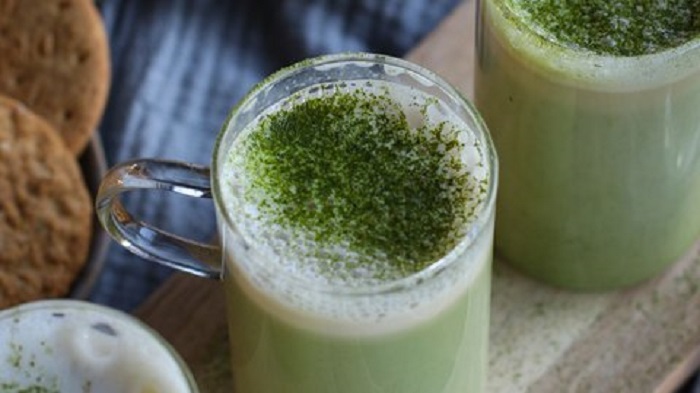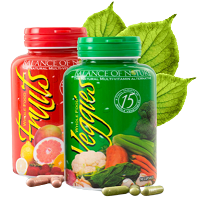Matcha green tea originating from Japan, is well known for its properties. Unlike teas matcha is consumed in form allowing the consumption of the entire leaf. This unique aspect has made it highly sought-after by those who prioritize their health. Extensive research has uncovered the health benefits associated with matcha and its components.
Like others, I have incorporated matcha into my routine and enjoy several cups per week. There are plenty of reasons to embrace matcha. Let me outline the 12 motives for choosing this remarkable tea.
The 12 Best Health Benefits of Matcha Green Tea

Here are 12 health benefits of Matcha Tea
1. Promotes anti-aging:
The consumption of matcha tea in Okinawa Japan is believed to contribute to the lives of residents known for their exceptional longevity. Matcha offers health benefits. Is gaining global popularity due to its ability to combat inflammation and oxidation and slow down the aging process.
2. Provides powerful anti-cancer benefits:
Matcha is rich in antioxidants called catechins that play a role in scavenging harmful free radicals in the body. Among the types of catechins, one particular compound called epigallocatechin gallate (EGCG) is known for its anti-carcinogenic properties. Studies have shown that a single cup of Matcha tea contains around 137 times more EGCG antioxidants compared to a regular cup of green tea.
3. Boosts the immune system
According to a recent study that appeared in the Proceedings of the National Academy of Sciences, incorporating Matcha into your routine can significantly improve your immune system response. The presence of antioxidants in Matcha, particularly catechins, polyphenols, and flavonoids, plays a role in supporting the body’s defense against harmful free radicals originating from various sources like food, air pollution, and water pollution. Consequently, this may lead to a decrease in the frequency of colds and fewer instances where you need to take leave from work.
Additionally, REAL people, not actors, show a lot of affection for the immune system on Pinterest
4. Improves Cholesterol Levels
Research conducted on populations has revealed that individuals who consume Matcha Green Tea on a regular basis tend to have lower levels of LDL cholesterol (commonly known as “bad” cholesterol). At the time, they exhibited levels of HDL cholesterol (considered “good” cholesterol). This positive association is also linked with blood pressure and a reduced likelihood of experiencing a stroke. Isn’t this news?
5. Promoting Concentration
Matcha green tea has a higher amount of L-theanine compared to regular green tea, up to five times more. L-theanine is an acid known for its ability to affect brain activity and induce alpha waves. While matcha does contain some caffeine, the calming effects of L-theanine counteract the stimulating effects of caffeine. Therefore, a cup of matcha tea can improve focus and mental clarity without causing the sensations often associated with coffee.
6. Fighting Fatigue
Matcha proves to be a remedy for combating fatigue. With its blend of occurring acids and a hint of caffeine, it has the ability to provide an immediate boost in energy levels. The invigorating effects typically last for two hours, with some individuals experiencing benefits for up to six hours.
7. Stabilizing Blood Sugar Levels
For individuals with diabetes, Matcha can be beneficial in stabilizing blood sugar levels. The link between antioxidant activity and hypoglycemic effects is evident. The presence of sugars called polysaccharides in Matcha helps maintain blood sugar levels and prevents sudden insulin spikes, thus promoting stability in blood sugar levels.
8. Assisting Weight Loss
Apart from its advantages, Matcha tea also aids in weight loss. The abundant presence of EGCG in Matcha has been scientifically proven to enhance the body’s ability to use stored fat as an energy source. Additionally, it prevents the formation of fat cells. Research has shown that Matchas catechins can boost the body’s calorie burning rate and provide fat-burning benefits during physical activity. Cheers to that, don’t you think?
9. A Probiotic Powerhouse
Matcha contains levels of polyphenols, natural compounds found in tea plants. These polyphenols are believed to contribute to the health benefits associated with a diet rich in fruits and vegetables. When consumed, the bacteria in our gut metabolize these polyphenols, resulting in the production of metabolites derived from them. Essentially, matcha promotes the growth of bacteria while reducing bacteria.
10. Fresher Breath
Believe it or not, this information is entirely true. Matcha, known for its catechin content, possesses sterilizing properties. Consuming a cup of Matcha tea after a meal can inhibit the growth of bacteria for periodontal disease and bad breath while also protecting tooth enamel. Dentists really appreciate matcha because of its benefits.
11. Packed with Essential Vitamins and Minerals
Matcha contains a wealth of vitamins and minerals that contribute to promoting health. With amounts of vitamin C, magnesium, vitamin A, and various B vitamins, enjoying a cup of matcha tea offers a boost for your overall well-being. Vitamin C plays a role in strengthening your system and protecting you from colds and the flu. Additionally, vitamin A helps eliminate radicals, vitamin F promotes dental health, and vitamin P ensures the well-being of your bones and cartilage.
12. Eases Arthritis
If you want to prevent age-related stiffness, it’s time to increase your consumption of matcha tea! Adding more of this tea to your routine can have benefits for your joints and overall flexibility. The abundant polyphenols and beneficial compounds found in matcha and green tea have impressive anti-inflammatory properties that effectively reduce damage to cartilage.
Furthermore, the remarkable EGCG compound that we’ve highlighted can actively hinder the formation of molecules for arthritis. Considering these advantages, it’s evident that incorporating tea into your life can ensure a yoga practice that continues well into old age!
Side Effects
Matcha tea has health benefits. Is generally well tolerated by most people. However, it’s important to consume it in moderation, like any tea, as excessive intake can lead to some minor side effects. These potential side effects may include issues such as a stomach and constipation, as well as headaches, trouble sleeping, jitters, irritability, and heartburn. It’s worth noting that there have been reports suggesting that green tea from China might contain amounts of lead due to the plant absorbing it from the environment. However, this concern can be addressed by choosing matcha grown in certain regions or by regulating consumption since the amount of lead is negligible.
Health Benefits of Matcha Green Tea: Common FAQs
References: @Nioteas
Does Matcha Green Tea help with weight loss?
Numerous studies have shown that consuming matcha green tea can contribute to weight loss by improving health, reducing body mass index (BMI), and helping with shedding pounds.
Which type of matcha green tea is considered the best?
Ceremonial-grade green tea is widely regarded as the quality variant due to its origin from the freshest and most tender leaves of the tea plant. Known for its usage during tea ceremonies, this type of matcha stands out in terms of quality. Despite its price, the quality of matcha green tea justifies its use on special occasions.
Why do many people enjoy matcha green tea?
Apart from its popularity among individuals, matcha green tea has gained fame for its health benefits. Epigallocatechin gallate (ECGC), a natural compound found in matcha green tea, is known for its cancer-fighting properties. Another advantage of matcha green tea is its ability to aid in weight loss and promote heart health.
Is matcha as beneficial as regular green tea?
Matcha contains higher levels of caffeine compared to green tea. However, it is widely considered a choice due to its three times higher antioxidant content than other high-quality teas. Therefore, it can confidently be stated that matcha offers more benefits than green tea.
What are the health advantages of Matcha tea?
Matcha tea provides an array of health benefits, including:
- Enhancing well-being
- Possessing anti-cancer properties
- Rich in antioxidants that combat harmful free radicals
- Reducing the risk of diabetes
- Supporting weight loss efforts
How often should one consume matcha?
According to guidelines set by the Food and Drug Administration, the recommended maximum daily intake of caffeine is 400 milligrams (mg). According to De La Vega, a typical serving of matcha tea typically contains between 20 and 37 mg of caffeine. So there’s no need to worry about going over the recommended daily caffeine intake when enjoying this beverage. Just to give you some context, a regular cup of coffee typically has 95 to 100 mg of caffeine, according to the United States Department of Agriculture.
appetite suppressant supplements
Conclusion
Not all matcha powders are equal in quality. It’s important to choose a high-quality matcha that hasn’t been mixed with sweeteners or milk. These additives can reduce the health benefits compared to other forms of matcha tea.
Throughout history, matcha tea has been highly regarded for its qualities. It can be seen as a form of remedy. Whether you prefer brewing it, shaking it, stirring it, or blending it into a smoothie, both your body and taste buds will surely appreciate the goodness it brings.
References
https://www.ncbi.nlm.nih.gov/books/NBK581645/
https://www.ncbi.nlm.nih.gov/pmc/articles/PMC9792400/
https://www.ncbi.nlm.nih.gov/pmc/articles/PMC4045285/






![Organifi Green Juice Reviews [USA] – Best Superfood Drink](https://mygreensdaily.com/wp-content/uploads/2020/04/organifi-new-featured-150x150.png)






